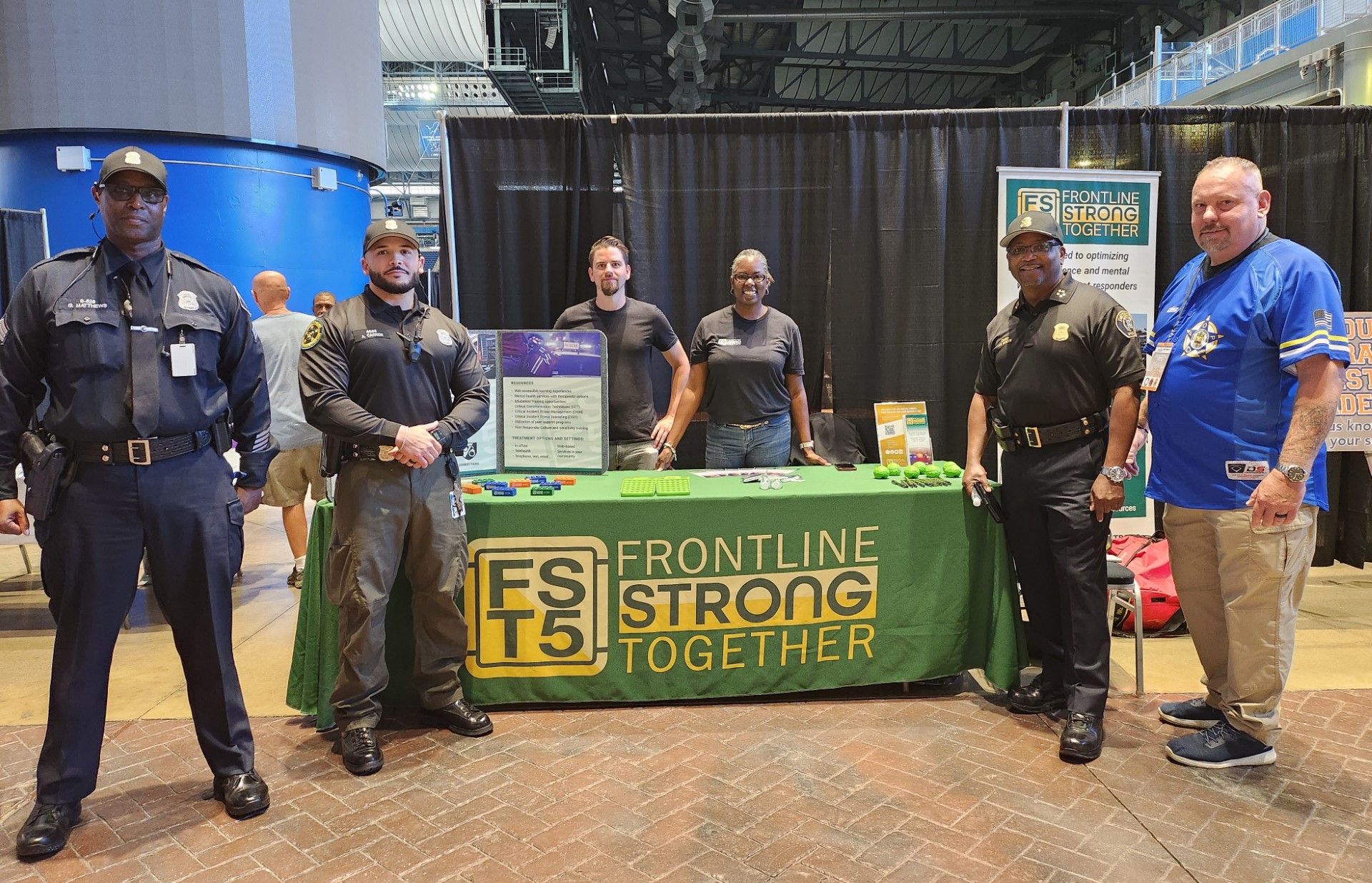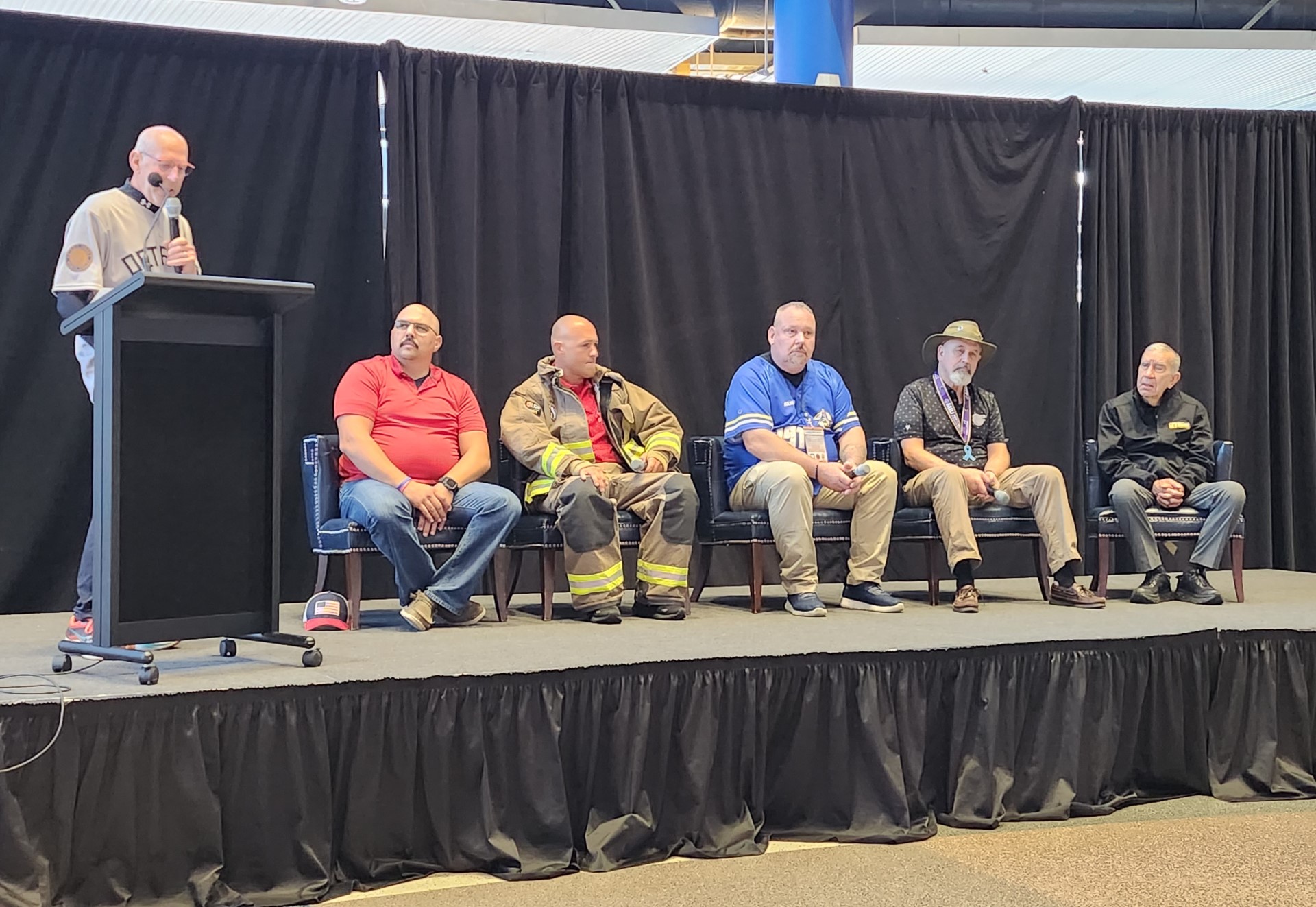
Wayne State University School of Medicine and Wayne Health officials took part in the 13th annual Men’s Health Event at Ford Field in Detroit.
Hosted by the MIU Men’s Health Foundation, the Sept. 30 event focused on preventive health care for men, with health screenings, bloodwork, flu vaccinations, HIV testing, oral cancer and dental checks, vision and glaucoma screenings, skin cancer screenings, diabetic foot checks, heart status monitoring, colorectal cancer kits and mental health evaluations.
This was the second year that the WSU Department of Psychiatry and Behavioral Neurosciences participated. The department represented Frontline Strong Together and provided mental health screenings.

Frontline Strong Together, developed by the department, was created to support police officers, firefighters and other first responders and their families in dealing with the stress they face in their professions. Developed in conjunction with first responders, the program now supports first responders and their families in 83 counties in Michigan.
The day’s event included a Veteran and First Responder Health Risks panel discussion featuring Alireza Amirsadri, M.D., chief medical officer for Wayne Health and associate professor of WSU Psychiatry and Behavioral Neurosciences. Dr. Amirsadri is the main developer of Frontline Strong Together, which offers a website and help telephone line, as well as training to members of first responder teams.
WSU Gerontology and The Physician Assistant Studies program of the WSU Eugene Applebaum College of Pharmacy and Health Sciences, and the WSU Institute of Gerontology also provided services at the event.
Free health screenings and tests were provided in partnership with Wayne Health, Corewell Health, Ascension, Henry Ford Health, Detroit Mercy Dental and Trinity Health. In addition to standard vital measurements, blood screenings tested for prostate-specific antigen, testosterone, A1c and a full lipid panel.
The event included free lunch for attendees, the opportunity to kick a field goal and haircuts. A job fair included educational and vocational opportunities for skills-based training. A half-time show featured an in-depth discussion of what’s new in men’s health in 2023.
More than 1,300 men attended, and 3,500 health screenings were performed. More than 20,000 metropolitan Detroiters have attended, and 110,000 health screenings have been conducted, since the first Men’s Health Event in 2011.